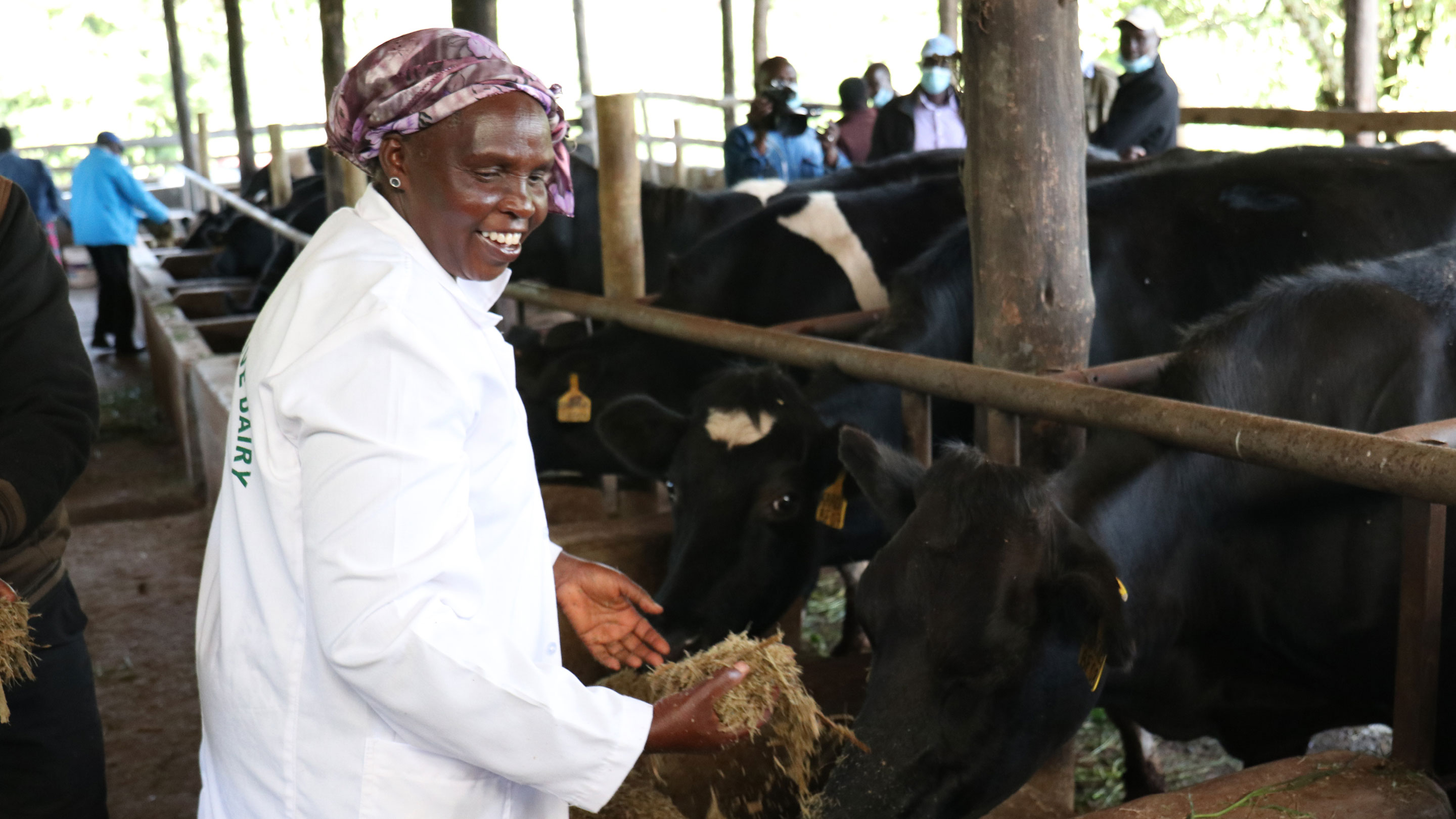Dairy Hub project in Kenya raises milk productivity and household income
In Kenya, Tetra Pak and Tetra Laval Food for Development are collaborating with partners to help 30,000 farmers to increase dairy productivity and income through a Dairy Hub model. The project does not only aim to increase productivity but also increase milk collection and improve milk quality as well as engage women and youth throughout the dairy value chain. Since the project started in 2017, milk production has increased by 19 per cent and the average annual net household income has risen from US$201 to US$1,777.
In Kenya, smallholder farmers are responsible for nearly 80 per cent of all milk produced but they have traditionally been challenged by a lack of infrastructure and experience, which threatens access to safe and nutritious food in the country. The Kenya Market-Led Dairy Value Chain Supply project (KEMDAP) was formed to help improve the situation and meet the growing demand for milk and dairy products. KEMDAP is a four-year project funded by the Swedish International Development Cooperation Agency (SIDA) and implemented by Heifer International.
Linking farmers to a dedicated dairy processor
Tetra Pak joined the KEMDAP project along with Tetra Laval Food for Development and their Dairy Hub model to link 30,000 smallholder farmers to a dedicated dairy processor – in this case New Kenya Cooperative Creameries. This helps enable stable access to market for the farmers and the safe distribution of UHT (ultra-high temperature) treated milk throughout Kenya. UHT milk is key to ensuring food security and safety in the country as the milk has an increased shelf life, meaning it can reach remote areas without a cold chain.
Reference farmers inspire others
“In the Tetra Laval Food for Development team, we work directly with Extension Officers, a team of local technicians, who are focused on providing extension services and knowledge to the smallholder farming community. We provide the them with technology and hands-on training, and they then cascade this knowledge down throughout the dairy value chain. In the KEMDAP project, we work with a reference farm methodology, working closely with 11 reference farmers carefully selected because they are people who are open to change and have the potential to inspire those around them,” explains Lynda McDonald, Project Manager, Dairy Development, Tetra Laval Food for Development.
It has not been an easy journey for the farmers and they have faced many challenges along the way. But strong support from the Extension Officers helped them to solve issues such as lack of clean fresh water, proper feed and nutrition, poor record keeping and a lack of proper farm management, resulting in increased production and profitability.

Madgeline Buigut is one of the 11 reference farmers. She has been working with dairy farming for more than a decade, but without seeing much profit. That has now changed, and her farm has grown significantly. Madgeline is also happy that more women are getting a chance to run farms and inspire others to follow in their footsteps.